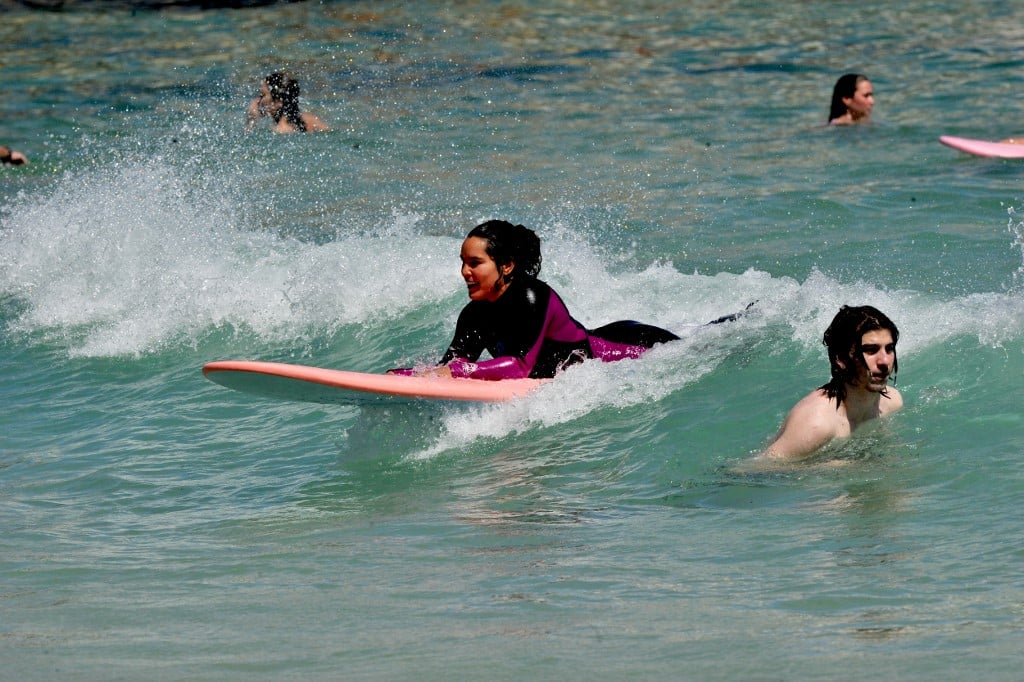
High school graduates often feel overwhelmed with the sheer choice of pathways and programmes available for their higher education needs.
You’re spoiled for choice between A Levels, IB (International Baccalaureate), and AP (Advanced Placement), to name a few. Then there are foundation programmes, which act as an introductory year to a full three- or four-year degree.
Of all the options, here’s why you should consider pursuing diploma courses in Australia:
- The wide range of options available. Whether you have a passion for nursing, design, or education, there’s something for you.
- How widely recognised diploma courses in Australia are. In 2023, Australia joined a worldwide treaty in higher education, making it easier for Australian education institutions and their students to be more globally mobile.
- The ability to fast-track your diploma to a degree in Australia. Curtin University, for example, offers diploma graduates in fields such as early childhood education, construction management, and design a fast-track pathway to degree qualifications.

Pursuing a diploma course in Australia is a cheaper and faster route to getting a job in one of the most sought-after countries in the world. Source: AFP
Here are the best diploma courses in Australia:
While the breadth of offerings of diploma courses in Australia is amazing, some are better than the rest.
If you’re hoping to turn your student visa into a permanent residency, these are the diplomas you’ll want to be jumping on the bandwagon for.
Why? Well, in July 2024, the Australian Government released a list of 10 jobs that will be most in demand during the next five years based on shortages, expected growth, and the Skills Priority List. Here’s the top three for you to consider:
1. Diploma in Software Engineering
As employers often struggle to find sufficient candidates because of the complexity of the roles for jobs in tech, a diploma in Software Engineering is your key to getting into Australia’s job market.
A diploma in this field covers the fundamental concepts of computer programming, cybersecurity, database design and management, and prototyping engineering designs.
Some of the top universities offering this diploma, or something similar, include:
- Diploma of Software Engineering at Macquarie University
- Diploma of Information Technology at Victoria University
- Diploma of Network Engineering at Charles Darwin University
2. Diploma in Dental Technology
With a labour shortage throughout the country, earning a diploma in dental technology might be one of the best investments in Australia.
Here, you’ll learn how to construct models and custom impression trays, build removable acrylic dentures and alloy frames, and make crown and bridge structures.
It’ll prepare you to work as a dental hygienist, technician, and therapist, with stable future job growth according to the Australian Government’s Job Outlook service.
The following institutions offer a Diploma in Dental Technology: TAFE Queensland, TAFE SA, and RMIT University.
3. Diploma in Nursing
Nursing is one of the most popular options for students, as once completed, you can immediately begin applying your skills in the field.
According to Health Workforce Australia (HWA), the country will face a shortage of over 100,000 nurses by 2025 and more than 123,000 nurses by 2030.
As a result, nurses are in high demand in Australia, and now is a great time to pursue a diploma in nursing.
With this diploma, there are plenty of opportunities to advance in the medical field. You can work in several areas, including emergency, aged care, mental health, pediatric care and general practice.
If you are looking for the best universities in Australia to pursue a diploma in nursing, check out the ones offered at the University of Wollongong, Victoria University, and Holmesglen Institute of TAFE.

Early childhood education is considered one of the easier diploma courses in Australia. Source: AFP
Here are the easiest diploma courses in Australia:
As much as we wish it were true, there is no easy course. However, some courses may be simpler and do not require memorising large chunks of information.
If you are looking for the quickest and least stressful way to earn a qualification, you might want to consider these courses:
1. Diploma of Business Studies
Through this course, you will learn about marketing, finance, and accounting. While none of those topics are easy by any means, they are perceived to be “easier” simply because the subjects are all highly relatable.
Unlike physics or law, with abstract theories, concepts like marketing and finance are concepts that students have experience dealing with.
Check out these universities in Australia for a business studies diploma, all of which will allow you to continue your studies further with a degree in business studies: Monash College, Torrens University, and UNSW College.
2. Diploma in Early Childhood Education
Many consider a diploma in early childhood education an easier academic route as it involves more hands-on learning.
However, while you don’t have to remember each element on the periodic table, you will have to deal with children — and all their quirks — all day.
If you are ready to take on that responsibility, the universities in Australia that offer a diploma in early childhood education are Swinburne University of Technology, Ikon Institute of Australia, and INHA Australia.

While no academic achievement comes easy, it’s always worth the effort — like swimming after a wave and successfully surfing it in style. Source: AFP
Here are the cheapest diploma courses in Australia:
Diplomas are a quicker and more affordable pathway that prepares you for your chosen career.
Because they are shorter, you can save up to two years of tuition fees and other living costs, such as rent, transport, food, and more.
Below are some of the cheapest in Australia:
1. Diploma of Leadership and Management
At an estimated AU$8,747 a year, the Diploma of Leadership and Management offered by the Swinburne University of Technology is one of the cheapest courses available in Australia.
A diploma in this field is also popular as the subjects taught are versatile and applicable in many industries, paving the way for many job opportunities.
At Swinburne, this diploma is delivered uniquely through workshop clusters that students can complete in any order.
By the end of the course, you will develop the skills to lead and manage teams, understand and provide customer solutions and design and implement improvement processes.
Finding a job after completion should not be a problem as many opportunities are available. Some of the popular career routes include:
- Information System Manager
- Account Management Executive
- Account Manager
- Management Consultant
2. Diploma of Dementia Care or Diploma of Ageing Studies and Services
The Diploma of Dementia Care or Diploma of Ageing Studies and Services offered by the University of Tasmania takes place over one year — completely online — and is priced at AU$13,950.
Australia, like many other countries, faces a growing ageing population, where one in six Australians is now 65 or older. Dementia is a problem too, as over 400,000 Australians are currently living with it.
The Diploma of Dementia Care will allow you to go into careers around optimising the health and social care of those living with dementia, while the Diploma of Ageing Studies and Services will allow you to
propose strategies to assist older people to navigate and access services to meet health and social care needs.
Here, you’ll also learn to analyse frameworks and approaches that support the needs, interests, and well-being of older people. These are handy skills to have, especially as Australia has a nationwide shortage of aged and disabled carers.

Live life to the fullest, even on a budget. In Australia, it’s possible. Source: Arina Dmitriev
Frequently asked questions about diploma courses in Australia:
1. Are diplomas in Australia worth it?
The simple answer is, “Yes, a diploma in Australia is worth it.”
Completing a diploma in Australia can open the doors to many opportunities. It equips you with the knowledge and skills and how to apply them.
Once you graduate with a diploma, you can either pursue higher studies by progressing to a bachelor’s degree or apply for a job to begin working.
2. What is the requirement for a diploma in Australia?
Most courses have the following requirements:
- Applicants must be at least 16 years old when applying
- Proof of English proficiency by completing the PTE, IELTS, or TOEFL examinations
- A high school diploma or equivalent
- Proof of funds
- Academic transcripts
3. How many years is a diploma in Australia?
A diploma course can be completed in less time than degree programmes. In Australia, it typically takes one to two years to complete.
The diplomas offered cover various fields and aim to prepare students with the foundational knowledge and basic skills required to pursue a professional career.

A diploma course in Australia sets you up for a bachelor’s degree or even a career in some of the greatest cities in the world. Source: AFP
4. Can I get PR after my diploma in Australia?
It is possible to gain permanent residency in Australia after you complete your diploma programme. However, the process can be pretty tricky.
In Australia, a PR is granted based on a points-based system, so you will be eligible if you have the required points.
International students who have completed a course leading to an occupation listed on the Skilled Occupation List (SOL) can apply for a Graduate or Permanent Visa after graduation.
5. Can I work while completing a diploma course in Australia as an international student?
The good news is that all international students are able to work as they complete their studies.
The Australian student visa mostly permits all international students to work part-time for up to 48 hours every fortnight during term time unless they are a PhD and master’s research students.
The work hour cap does not apply during semester breaks or holidays. During those times, international students can work unlimited hours.
Disclaimer: This article was last updated on December 13, 2024.










